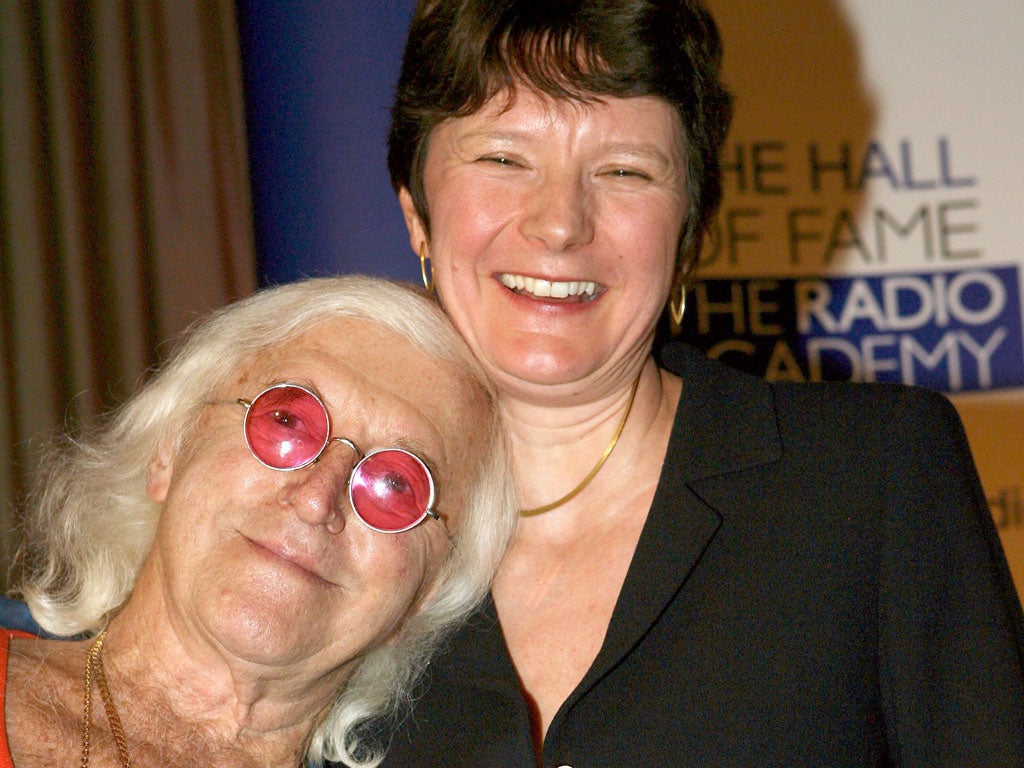
Helen Boaden was cheerful last week. Loud, bright and breezy. "She basically came waltzing through the newsroom saying: 'Hello, hello everyone! Hello,'" said a colleague. "She didn't break stride. She was almost running." Ms Boaden, the director of BBC News, was thought to be compensating under the pressure of daily crises, which started with embarrassing questions at a Commons committee and evolved into bitter infighting, as BBC journalists and management tried to cannibalise each other.
The external scrutiny and internal scuffling seemed likely to intensify last night, after it emerged that taxpayers would pick up the legal fees of Ms Boaden, 56, her deputy, Steve Mitchell, and Newsnight editor Peter Rippon, who have remained almost completely silent on what the veteran newsman John Simpson calls the corporation's "worst crisis in 50 years".
It had been widely speculated ahead of the appearance of the BBC director general, George Entwistle, before the Culture, Media and Sport Committee last Tuesday that his performance would decide whether he kept his job, but he changed the focus by expanding on why Mr Rippon was asked to "step aside" for the duration of the inquiry. He said he was "disappointed" by assertions made in Mr Rippon's blog explaining the reasons behind his decision to axe Newsnight's investigation into Jimmy Savile, and which the BBC, humiliatingly, had to correct last week. Mr Entwistle also turned the heat on Steve Mitchell, after he confirmed that he had read Mr Rippon's "inaccurate" blog.
Perhaps the biggest casualty of Mr Entwistle's testimony was Ms Boaden. When the Newsnight investigation was dropped in December 2011, Mr Entwistle was the head of BBC Vision, effectively in charge of television, and Ms Boaden reported to him. Ms Boaden had told Mr Entwistle in November 2011 that Newsnight was investigating Savile, but gave him no details.
Last Tuesday, he told the committee he had been waiting to hear from her how the Newsnight investigation progressed: "The key message I took away from the conversation was that it wasn't yet clear to Helen whether it was going to stand up."
She had told Mr Rippon, Mr Entwistle added, that "just because Jimmy Savile was dead, it didn't mean there could be any skimping in journalistic standards". Journalists on the original Newsnight investigation interpreted this as a signal to Mr Rippon to kill the story because "Boaden placed an impossibly high barrier".
The role of the former BBC director general, Mark Thompson, also came under scrutiny after he said he now recalled being told about the decision to drop the Newsnight investigation. Lord Patten of Barnes, the chairman of the BBC Trust, was criticised after admitting he failed to act on the matter sooner.
A succession of former BBC staff confessed they had heard rumours about Savile: Paul Gambaccini even went so far as to rehearse suggestions that the DJ had indulged in necrophilia. But one senior broadcasting figure responded: "I think, to all these people who say 'I suspected he was up to no good', my question is: what did they do about it? If you know somebody is doing something bad and you don't help to identify that, then you are complicit in the further harm that individual causes."
In an article for the London Review of Books, author Andrew O'Hagan claims BBC broadcaster Lionel Gamlin, who produced children's programmes and presented Top of the Form, regularly had sex with young boys in a secret Fitzrovia hideaway during the 1950s. He said Gamlin and a man behind "some of the landmark comedy shows at the BBC" shared use of the flat, where they would take young boys. Gamlin died in 1967.
Children's Hour presenter Derek McCulloch – known to children as "Uncle Mac" – is accused of similar abuse and regularly taking children "to the gents to interfere with them". O'Hagan says parents' complaints were waved away as fiction by the office of the director general whose letters said: "The nation wouldn't understand such an accusation against a much-loved figure."
